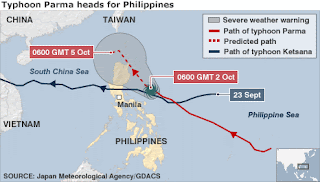 US President Barack Obama is to discuss US policy in Afghanistan with his national security team, as speculation mounts over a decision on troop levels.
US President Barack Obama is to discuss US policy in Afghanistan with his national security team, as speculation mounts over a decision on troop levels.He denied reports that the president had already settled on a figure and said a decision was still weeks away.
The top US military commander in Afghanistan has asked for at least 40,000 more US troops there.
Wednesday's meeting comes as an exhaustive review of US strategy in Afghanistan, including troop levels, appears to be drawing to a close.
Reports citing anonymous officials have suggested that a figure somewhat below the 40,000 suggested by Gen Stanley McChrystal is likely to be chosen.
But on Tuesday White House spokesman Robert Gibbs said the president was yet to decide.
"Anybody who tells you the president has made a decision... doesn't have, in all honesty, the slightest idea what they are talking about," he said.
He gave no details about the four options that he said Mr Obama would weigh up.
Officials have stressed that the review is not just about numbers, but includes decisions on how troops should be deployed.
Among the key outstanding issues is said to be how much the government of Afghan President Hamid Karzai, who was recently declared the winner of a widely criticised election, can be relied upon.
One senior source told the BBC that whichever option was chosen, the focus would be on protection and training rather than going out and seeking to kill the Taliban.
Critics have said the decision on Afghanistan is taking too long, while Mr Obama has said he does not want to rush a decision that involves putting troops at risk.
The BBC's Caroline Wyatt says that there is a growing sense of frustration at the length of time it is taking for the White House to make its decision amongst military commanders and politicians from other coalition countries.
As public support for the campaign wanes in almost every Nato ally, the signal sent out by President Obama's decision will be crucial - and the fear is that the current delay sends out a message to other Nato members, to the Afghan people and to the Taliban and al-Qaeda that America and its partners may be wavering, she says.
Any reinforcement of troops is expected to start next spring.
The US currently has some 68,000 troops in Afghanistan, contributing to a coalition force of more than 100,000.














